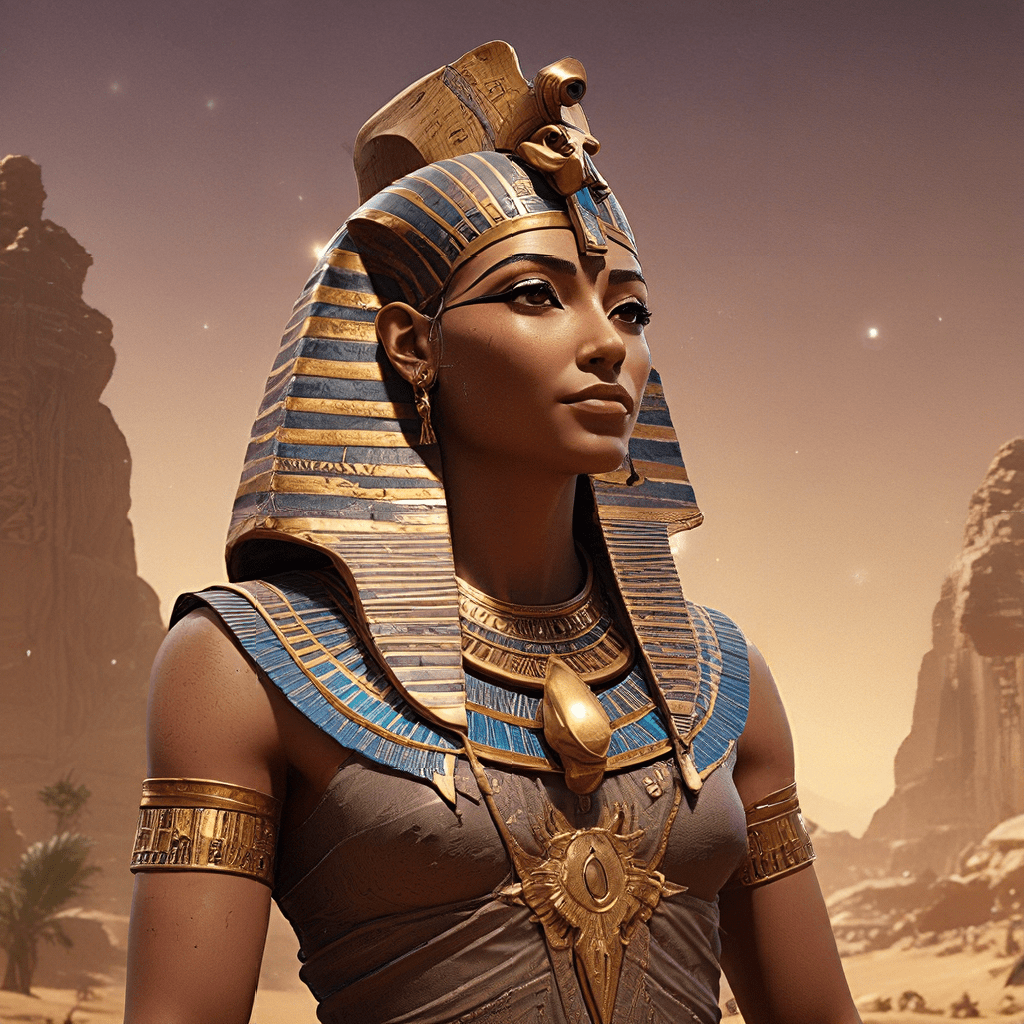The Egyptian Cosmos: A Quiz and Interactive Game
Ancient Egypt was a civilization that deeply revered the cosmos and its influence on life. Their mythology, filled with gods and goddesses, was intricately woven with their understanding of the natural world. From the rising sun to the star-studded night sky, the Egyptians saw divine forces at play. This article delves into the fascinating realm of Egyptian cosmology, exploring their beliefs about the universe, the afterlife, and their place within it.
Introduction to Egyptian Cosmology
Egyptian cosmology, the study of their universe, was a complex tapestry of beliefs intertwined with their daily lives. The Egyptians viewed the world as a structured and ordered place governed by divine beings. They believed that the sun god Ra sailed across the sky in his celestial boat, bringing light and life to the earth. The stars, too, played a significant role, serving as celestial markers and guides for their journey through the cosmos.
The Egyptians were keen observers of the natural world, and their understanding of astronomy was remarkable for their time. They noticed the regular cycles of the sun, moon, and stars, leading them to develop a sophisticated calendar based on the yearly flooding of the Nile River. This calendar, essential for their agriculture, was inextricably linked to their cosmology.
The Nine Realms of the Egyptian Underworld
The Egyptians believed in an afterlife, where the souls of the deceased embarked on a perilous journey through the underworld, known as Duat. This realm, ruled by the god Osiris, consisted of nine realms, each with its distinct challenges and dangers. The souls, guided by the jackal-headed god Anubis, navigated through these realms, facing judgment and trials before reaching the final destination – the Hall of Two Truths, where their hearts were weighed against a feather of Ma’at, the goddess of truth and justice.
The underworld’s journey was not a journey of punishment but a transformation. Successful souls were granted eternal life in the Field of Reeds, a paradise mirroring life on earth, where they could rejoin their loved ones who had passed before them.
The Sun God Ra and the Creation Myth
At the heart of Egyptian mythology lies the sun god Ra, the creator of all things. According to their creation myth, Ra emerged from the primordial waters of Nun, bringing light and order to the chaotic void. He then created the world and all life, including humans, through his divine power.
Ra’s journey across the sky each day was a testament to his power and his role as the giver of life. He battled with the forces of darkness each night, ultimately emerging victorious each morning, ensuring the cycle of life and death continued. The Egyptians saw Ra’s journey as a metaphor for their own journey through life and beyond.
The Role of the Stars and Constellations
The night sky held immense significance for the Egyptians. The stars were not mere celestial bodies but divine beings, each with its own story and purpose. They observed and charted the stars and constellations, using them for navigation, timekeeping, and even predicting the future. Constellations like Orion and Sirius were associated with deities and played crucial roles in their mythology and rituals.
The Egyptians believed the stars guided the souls of the deceased through the underworld, and their position in the sky could influence a person’s fate. This belief created a deep reverence for the celestial realm, underscoring the importance of their place within the cosmos.
The Significance of the Nile River
The Nile River, the lifeblood of ancient Egypt, held a special place in their cosmology. The annual flooding of the Nile, which brought fertile soil to the land, was seen as a divine gift, a manifestation of the gods’ generosity. The Egyptians believed that the Nile was a sacred waterway, connecting the world of the living with the underworld. They saw the river as a symbol of life, renewal, and the cyclical nature of existence.
The Importance of the Afterlife
The Egyptians placed immense emphasis on the afterlife, believing that life on earth was merely a preparation for the journey to the next world. Their elaborate burial practices, including mummification and the creation of elaborate tombs, were designed to ensure a smooth passage into the afterlife. The Egyptians believed that preserving the body was crucial to preserving the soul’s essence, allowing it to embark on its journey to the underworld.
Interactive Game: Exploring Ancient Egypt
To further immerse yourself in the fascinating world of Egyptian cosmology, you can explore interactive games and online resources. These experiences will help you visualize the Egyptian world, discover the stories behind their gods and goddesses, and unravel the mysteries of their beliefs.
By engaging in these interactive activities, you can gain a deeper appreciation for the richness and complexity of Egyptian mythology and its enduring influence on our understanding of the universe.
Quiz: Your Knowledge of Egyptian Cosmology
Test your understanding of Egyptian cosmology with a fun and engaging quiz. This quiz will challenge your knowledge of their mythology, gods, goddesses, and beliefs about the cosmos.
By answering these questions, you can solidify your grasp of their fascinating worldview and appreciate the intricate connection between their mythology and their daily lives.
Conclusion: The Enduring Legacy of Egyptian Mythology
The study of Egyptian cosmology offers a glimpse into a world where the natural world and the divine were inextricably intertwined. Their mythology, with its rich tapestry of gods, goddesses, and beliefs, has captivated minds throughout history and continues to inspire awe and wonder today. By exploring their cosmology, we delve deeper into the human fascination with the cosmos and our place within it, a fascination that transcends time and culture.




